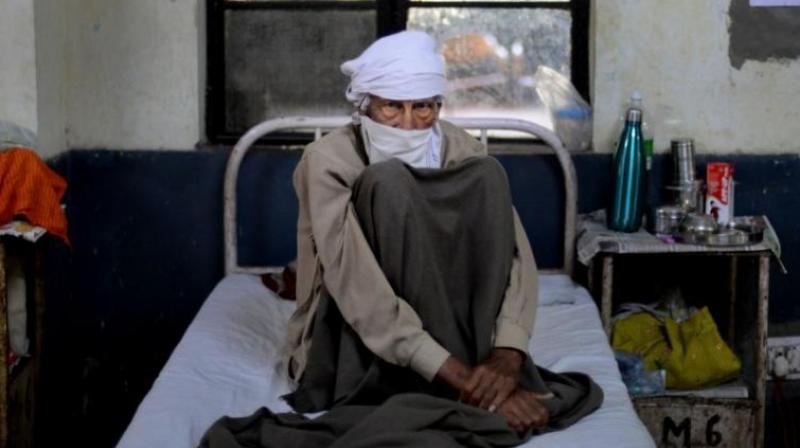DG of Health Services calls activists unstable' at conference on TB
Angered by the response of the DGHS, the global community has decided to take up the issue and involve the International community.

Liverpool: In a further evidence proving that there is no room for critical voices in India disagreeing with government policies, the Director General of Health Services (DGHS) Dr Jagdish Prasad attending the 47th Union World conference on Lung health at Liverpool attacked the global health activists calling them “unstable”, “mentally unwell” when they came protesting, calling on Indian government to act and implement the policies and programs required to end TB in India.
Angered and baffled by the response of the DGHS, the global community has decided to take up the issue and involve the International community. “There are many of us working in the US, UK, throughout the Europe and china, countries where India is looking to turn for broader friendship and we will make sure that the governments of those countries are aware what their links to India could mean so that they start to feel embarrassed as well about continuing to engage with the Indian government at the international level when such human rights violations are happening in the country everyday,” Dr Jennifer J. Furin, lecturer on Global Health and Social Medicine at the Harvard medical school told this newspaper.
Dr Furin was one among those who stormed into the session by the Indian government where they were applauding their “achievements” in tackling TB. Chanting “shame” and wearing black T shirts donning PM Modi’s photo, the protestors unveiled a banner before the audience, urging the DGHS to take back an urgent message to India’s Prime Minister Narendra Modi, Health Minister JP Nadda, to fix nine deadly implementation gaps in India’s TB response.
However, muzzling the critics, Dr Prasad said that he was not "bothered by the activists”. “My conscience is clear, we don’t want to discuss our problems in a foreign land. Activists here are mentally unwell, I will not talk to them…they have no value for me,” he said.
Adding that though there have been delays in getting TB drugs but “In India if son wants to marry it can take six months for the family to decide, same is for the policies,” he justified. He further said that “the bureaucracy has delayed things but at least it is happening”. “There are lot of ifs and buts in the system and I don’t want to discuss them here,” he stated.
Dr Furin said that the acvitists were not expecting this response from a serving government official. “Any type of response that involves insulting people who are actively trying to speak for those who don’t have access to care is troubling. It speaks that the government is not prepared to listen to the needs of the people on the ground and take the promise seriously, they will rather discredit the people who are raising the very serious concerns. It also speaks to the fact that the Indian government must be aware at some level that their promises look good on paper but the implementation has just absolutely neglectful. Rather than come back to the issues and say yes we understand the problems and we want to fix them in reality they dismissed the whole thing. We were not expecting that kind of behaviour," she added.
Erica Lessem, Director, TB/HIV Project Treatment Action Group (TAG) said that “the only thing that is unstable is the Indian government's response to TB. Letting 1,400 Indians die of TB each day of TB and not providing basic services such as daily treatment for TB, and prevention for the people most vulnerable to TB, is not only 'unstable'-- it is criminal. Yet multiple appeals from Indian patients and calls from Indian civil society over the past months and years have been ignored. The global TB community's appeals letters, tweets, emails, and articles have similarly had no effect. Raising awareness through a peaceful, public demonstration about the Indian government's failure to provide basic quality services was a completely logical and in fact quite moderate-- next step. Rather than criticizing civil society's action, we suggest the Indian government take a hard look at their own inaction on TB."
A campaign #brokenTBpromises by TAG- highlighting the way India has responded to the TB epidemic has been going on and shows that nine policy changes announced by India’s Revised National Tuberculosis Control Program (RNTCP) have had their implementation delayed time and again. The campaign started since August 1, 2016 has publicly counted up each day suggesting that India’s government has failed to implement the policies and programs required to end TB in India.

